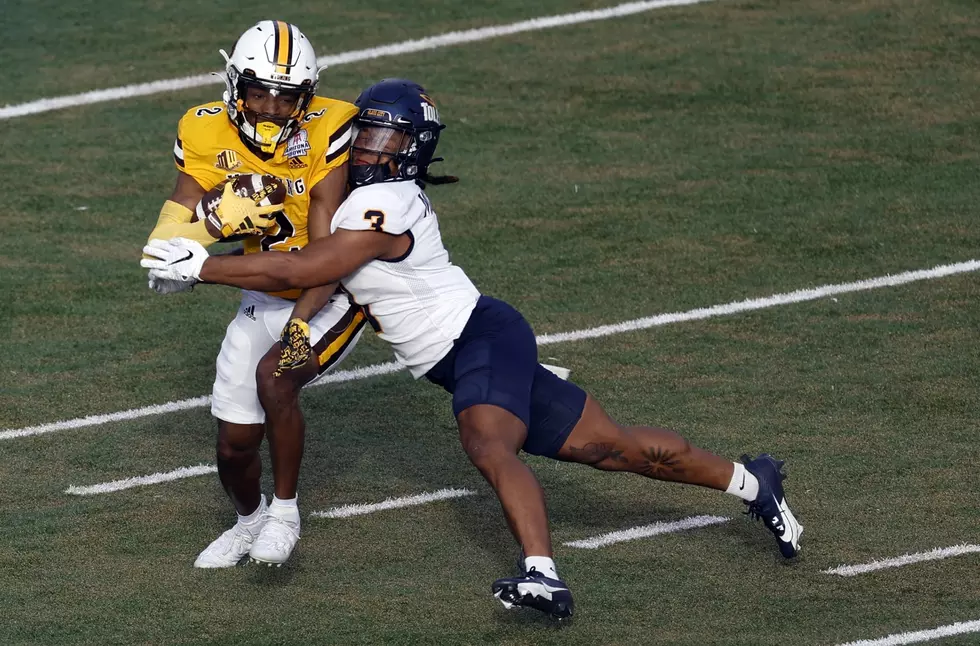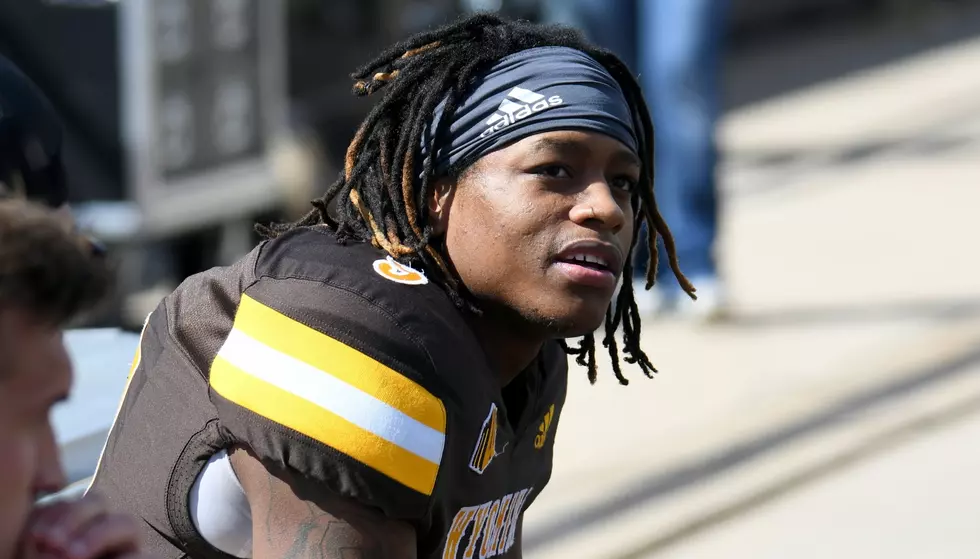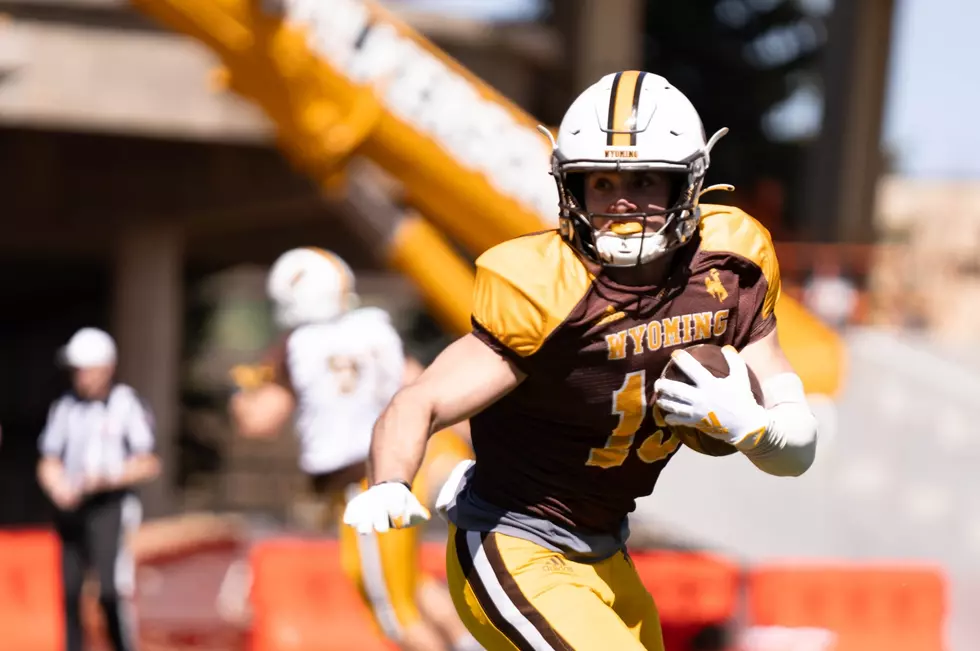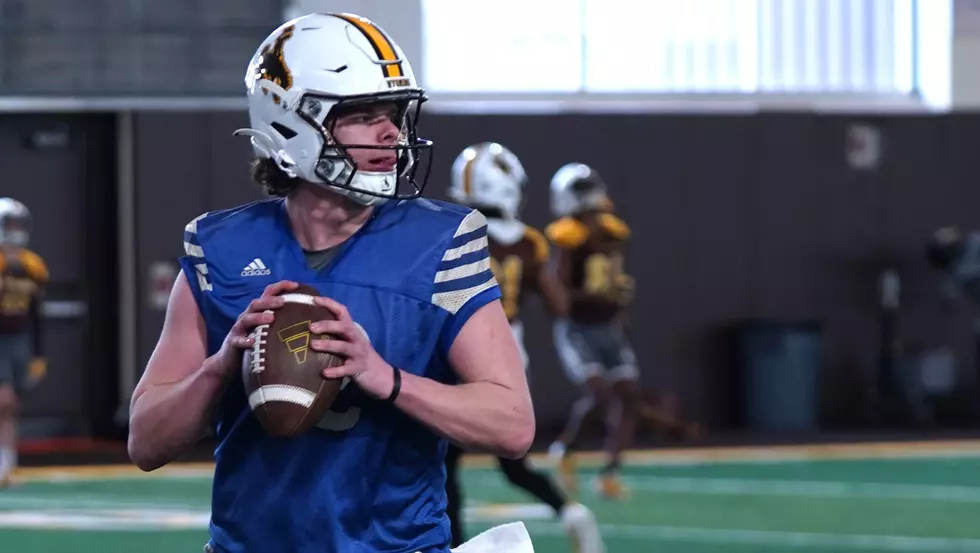
An innovator, motivator and winner — the Fred Akers story
LARAMIE -- Don Clayton said the offseason workout regimen during his first season in Laramie was like "Junction Boys in the snow."
If you don't know that reference, Paul "Bear" Bryant, the legendary football coach at Alabama, made a stop at Texas A&M first. His goal was to weed out the ones who couldn't cut it in his program. He took his Aggie team to middle-of-nowhere Texas and pounded them into the ground for weeks.
His goal was accomplished. Not during his first season in College Station, but eventually. The culture shift was in motion.
In this story, the head man was Fred Akers.
A new head coach who was brought in to bring winning back to the high plains, something the University of Wyoming hadn't seen much of since a trip to the 1968 Sugar Bowl and the infamous Black 14 incident.
Clayton, a wishbone quarterback from Nederland, Texas, was one of Akers' first recruits to UW in 1975. He remembers the running. So much running. The 25-pound weighted vest just added to the misery. He recalls the workouts inside the Fieldhouse, which was also used for basketball, track and even rodeo in those days.
The locker room, which featured a rubber floor, was the final leg of torture. For one, coaches would crank the heat so high it was like a sauna, Clayton said. Secondly, you couldn't get showered and dressed until you did 500 sit ups.
"I had the biggest blister at the top of my crack," Clayton said Monday night over the phone from his home in Texas. "Everyone did."
The camp Akers' ran before Clayton even got on campus was worse. Or so he heard.
"That first boot camp -- or hell week -- cleared out 50-60 guys," he said. "Pretty close to it, anyway,"
It's those type of memories that still bring a smile to Clayton's face. Even on a day filled with so much grief.
Earlier Monday, text messages between former teammates started to make the rounds. Akers, the guy best known for recruiting future Heisman Trophy winner Earl Campbell to the University of Texas, had died. He was 82.
Dan Christopulos, another Cowboy who was a freshman during Akers' first season in Laramie, also recalled those gruesome days of conditioning in the offseason. He was a walk-on from Cheyenne. Just because he was a placekicker didn't give him a free pass, either. He still recalls the silver trash cans positioned at every "station."
"I still remember sitting at my locker just shaking," he said with a laugh.
Lou Christopulos, Dan's older brother was a strong safety in Laramie under the previous head coach Fritz Shurmur. Apparently the exercises weren't the same back then.
There was a reason for that. Clayton and Christopulos know that now.
During Akers' first season at UW, the Cowboys finished 2-9. Seven or eight freshmen were on that squad, a rarity in those days, Clayton added. The Pokes' offense scored just 13 points in the first four games. The losses were lopsided aside from a 3-0 home setback to rival Colorado State.
Things started to change in early October. There was a three-point loss to Utah, followed by a 31-14 win over UTEP inside War Memorial Stadium. Wyoming would drop its next four before wrapping it up with a 24-10 victory over Air Force in Colorado Springs.
One game during that season stands out to Christopulos.
It was a meeting with No. 10 Arizona State in Tempe in early November. The Cowboys scored late to bring the score to 21-20. Akers had a decision to make -- go for the tie or the win.
"The biggest challenge was changing the mentality," Christopulos said. "The other thing he would say is, 'everyone wants to win, but do you expect to win? Do you see yourself as a winner?' We started believing."
Akers went for the two-point conversion. It failed. It also showed the team what this guy was all about.
"All those close games we lost during our freshman year, we won our sophomore year," he added.
Wyoming won six of its first seven games in 1976. The lone loss came against Kirk Gibson and Michigan State. The Spartans won a share of the Big Ten title that season.
The Cowboys took care of rivals Utah State, Arizona State, BYU, New Mexico and Utah. They went 2-2 down the stretch, but remember, in those days, UW played every November game on the road.
No one wanted to play in Laramie in the winter.
When the dust settled, Wyoming was Co-Champions of the Western Athletic Conference. They got there on the backs of guys like Paul Nunu, Dennis Baker, Marc Cousins, Walter Howard, Ray Stawowy, Kevin McClain and plenty of others, including Clayton and Christopulos.
The Cowboys were 8-4. They were heading to the Fiesta Bowl.
Before the plane took off for Tempe, though, Akers had an announcement to make. He was heading back to Texas, the school he was an assistant at from 1966-74. The Longhorns had an opening. It was one of two dream jobs for the Cowboys' head man, according to Christopulos and Clayton. One was Arkansas, Akers' home state and alma mater. The other, UT.
"It was really tough when he announced he was leaving," Christopulos said. "We couldn't blame him, either."
Clayton wasn't too surprised. As a kid growing up in the Lone Star State, he knew full well what that job meant. He had one last question for his head coach, who brought him more than 1,300 miles from home -- should he go with?
"I said, 'give me an honest answer here. You're the reason I came here and you're going back. Should I try and transfer there?'" Clayton recalled. "He said, 'as much as I'd love to have you there, you'll lose a year of eligibility and have to sit out a year. Plus, you'll always have the stigma of being one of coach Akers' boys if you come in.' He said, 'anything you may earn, people will doubt you earned it.' He said he didn't think it was the best thing for me. I always appreciated that and respected it."
Christopulos, who owns the longest field goal in UW history after nailing a 62-yarder against CSU in 1977, has a story about those final days, too.
He wasn't on a scholarship his first two years in Laramie. He was getting some academic money, but felt he was in line for the honor. Not to mention Akers brought in another kicker to challenge Christopulos. He was on a full-ride.
Akers wanted to know if he would leave a scholarship open.
"I said, you know what, I've proven myself," Christopulos said he told Akers in a private meeting inside his office. "I told him I really believe I deserve a scholarship. I asked him for that -- and he gave it to me. That's one of the last things he did before he left.
"I felt really close to him. If he would've coached me my entire career -- and I liked Bill Lewis, nothing against him -- but I feel like I would've made it further."
Akers coached the Cowboys through the bowl game. It wasn't pretty. Wyoming fell 41-7 to the Co-Big Eight champion Oklahoma Sooners, a team Akers would see plenty of during his 10-year career in Austin.
Akers' tenure in Laramie was brief, yet impactful if you ask these two. Wyoming was still an afterthought after 14 black players were kicked off the team by then-head coach Lloyd Eaton in 1969. UW was a national brand back then, a perennial Top-10 team in the nation. Under Shurmur, and the first season of the Akers' regime combined, the Pokes boasted a 17-38 record. They never finished .500 or better.
A Sports Illustrated feature named "Seldom is heard a discouraging word" was released in October of 1976. It revolved around the re-emergence of Cowboy football.
It talked about summer snowstorms, wide-open spaces and the general culture shock of mountain living for some. It spoke of the booster club, then known as the Cowboy Joes, and the record amount of giving to the state's lone program.
It also touched on an issue most remember about Akers' short stay -- putting a dome over War Memorial Stadium.
"The school itself is the smallest in the league," John Underwood writes. "And so is its stadium, although there are those who now believe that Akers is only a legislative session away from the $24 million appropriation he has been pumping for in order to dome over Memorial Stadium and, thereby, to allow the Cowboys to play home games in November. Because southern schools in the WAC are squeamish about such things as chill factors and snow accumulation, Wyoming always has to play its last four or five games on the road. The disadvantages are obvious."
A dome? In Laramie?
Clayton says the decision not to follow through with that, he believes, helped make Akers' Texas exit easier.
"I really think if they would have done that, he would've stayed," Clayton said. "I don't think he wanted to succeed Darrell Royal, but it happened. It was a surprise to him that it happened. That wasn't his goal to be Texas head coach at the time. He felt shunned when they didn't agree with him about putting a roof over things.
"It was because of weather, that's what he was trying to say. Why are we giving up the end of our season when you have to grind it out on the road? It takes a couple of home games to do it."
Clayton said Akers loved horses and the Wyoming way of life. He spoke highly of the state. He even came back in 2016 when the Fiesta Bowl team was enshrined in the university's Hall of Fame.
Clayton remembers a photo they took in the stands under their sign. He also recalls that's when Akers' diagnosis of dementia started to show. Christopulos said the same.
Akers was Clayton's special guest when he was inducted into the Texas High School Coaches Association Hall of Honor the following year. It was apparent then that Akers wasn't doing well.
"It was sad because of the role he played in my life," Clayton said.
That night, Akers' wife, Diane Akers, told Clayton those types of events were good for her husband. It helped him remember names and moments, if only for a night.
"It didn't fix the problem, but it showed a glimmer of hope at that time," Clayton recalled.
Akers spent the final months of his life in an assisted living facility outside of Austin. Diane Akers in late July penned a letter urging Texans to reach out to local elected officials to lift the ban on visitation to these facilities because of the ongoing COVID-19 pandemic.
"As a result of this COVID-19 dictate, I am no longer able to communicate with him, nor touch, hug or hold him as the State of Texas has 'locked' down Memory Care and nursing homes due to the virus," she wrote in part. "... He is alone, frightened, confused and most concerning, he is declining."
That's not how Christopulos will remember his coach.
"He was a classy guy and I think a man of faith too," he said of Akers. "He treated people the right way. That was a good example to all of of us."
Clayton, who said he plans to attend the funeral when it is announced, said he wouldn't have dedicated his life to coaching if it wasn't for his mentor.
He called Akers an innovator. He brought in strength coaches and motivational speakers before that was even a thought in the game of football. He tweaked the wishbone offense, adding more of a passing element. At Texas, he scrapped Royal's running attack for the "I formation." Not a popular decision until Campbell hit the turf.
That forward thinking won him a lot of games, too.
During his career, Akers was 108-75-3. That included a four-year run at Purdue that produced just 12 wins.
He passed away Monday surrounded by his family at his home in Horseshoe Bay.
The legacy he leaves behind, according to Clayton, should be one of a man who cared about winning and, more importantly, people.
"He would talk to you and would never talk down to you," he said. "That was always a trait I'd wanted to have one day when I was coaching. His impact is monumental on the State of Wyoming. I don't think at the time people realized it ... Looking back, he turned the program into what it's experiencing today. Being well-known and well-respected."
More From 7220 Sports









